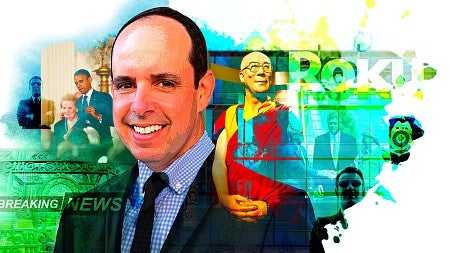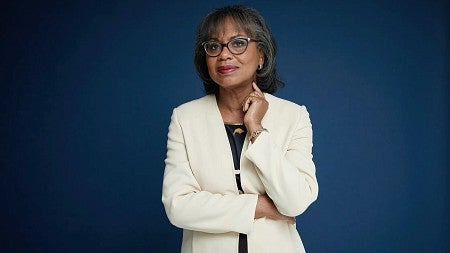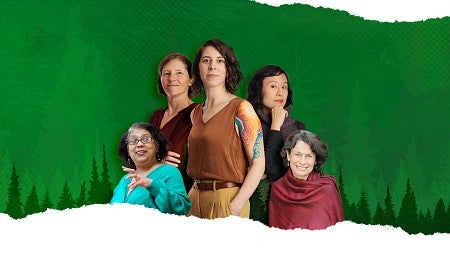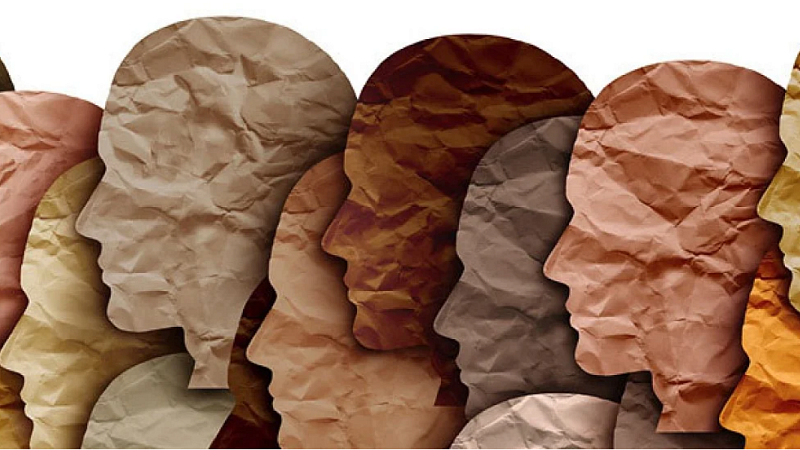
Human Rights Watch Fits International Studies Graduate
Namratha Somayajula's lifelong interest in human rights leads to a career in advocacy
By Emily E. Smith • April 7, 2021
3 min readDuring her first days on the job at Human Rights Watch in 2018, Namratha Somayajula got a glimpse of the work that goes into exposing human rights violations and advocating for change.
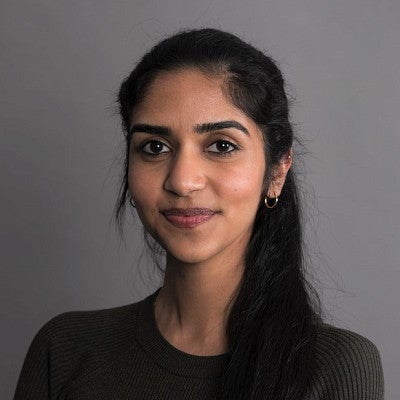
She helped prepare a report on deregulation of the coal industry and the effects on workers’ health and access to clean water in Appalachian coal towns. Her role was minor, she says, but the project struck a nerve.
“I had really never made that direct association between environmental deregulation and how that impacts the health of coal workers,” says Somayajula, BA ’17 (Clark Honors College, international studies).
The work reaffirmed for Somayajula (right, Somayajula photo copyright 2020 Human Rights Watch) that terrible injustices often involve the most basic resources, such as access to clean water and air—essentials that many people take for granted.
“It revived an interest that I’ve had for a long time in the right to water,” she says, “and how unequal access to clean water can be manifested in so many contexts.”
Somayajula became attuned to these injustices as a 10-year-old in 2005, when her family moved temporarily from the Bay Area to the southeastern coast of India.
“There was a huge disparity in who was able to access clean water daily, especially in the aftermath of the monsoon flooding that happened that year,” she says. “I didn’t have the human rights language to articulate what I was seeing, but I realized it was wrong and was curious as to how that could be—how it was that so many people could be denied such a basic necessity.”
The family returned to the states in 2006 and Somayajula’s interest in global human rights continued to grow.
At the University of Oregon, Somayajula participated in the honors college Inside-Out program, which brings students and people who are incarcerated together to study as peers within prison. The weekly interactions opened her eyes to the injustices imprisoned people face, she says.
“It helped me understand how stereotyping and silencing disenfranchised groups perpetuates cycles of harm,” she says.
After she graduated, Somayajula completed a Herbert Scoville Jr. Peace Fellowship at ReThink Media, a communications organization where she studied the effect of media narratives on public perception of US nuclear weapons policy. Then she landed the job at Human Rights Watch in Washington, DC.
The international organization investigates human rights abuses in nearly 100 countries. As a senior associate, Somayajula assists researchers working on poverty, inequality, and corporate accountability issues.
She contributes background research, drafts correspondence, communicates with human rights partners, and helps prepare the division’s press releases, reports, and other products for publication.
Somayajula also pens op-eds and blog posts on environmental justice and workers’ rights. She’s covered the use of forced labor in Uzbekistan’s cotton fields, the importance of access to clean water amid the COVID-19 pandemic, and US consumer protections.
“Writing on these topics allows me to shine a light on critical issues, collaborate with and learn from colleagues, and apply the skills I’m gaining,” she says.
Still early in her career, Somayajula says her role is largely to assist more senior colleagues in their pursuit of legal advocacy and policy change. But she’s gaining deep insight into the work of protecting and expanding human rights.
“I have a front-row seat and participate in the preparation process to roll [a campaign] out,” she says. “It informs how I would approach human rights research and advocacy in the future.”
Emily E. Smith, BA ’10 (women’s and gender studies, journalism: news-editorial), is a writer and editor in Bozeman, Montana.


